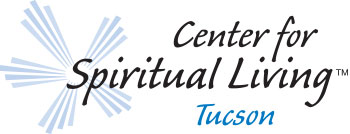Who’s In Charge of ‘Me’?
We had an earth-shatteringly tremendous conversation in last week’s Revealing Wholeness  class about what ‘The Body of God’ actually means. This is among the most difficult concepts in New Thought, because we, as walking, talking, living, breathing humans, don’t readily see our bodies and our lived experience as something that is temporary, infinitely changeable and infinitely malleable.
class about what ‘The Body of God’ actually means. This is among the most difficult concepts in New Thought, because we, as walking, talking, living, breathing humans, don’t readily see our bodies and our lived experience as something that is temporary, infinitely changeable and infinitely malleable.
We glibly say, “There is Only One Life, That Life is God’s Life, That Life is Perfect, That Life is My Life Now” and “It’s All God” and “God is All There Is.” Some of us can even recite, from The Declaration of Principles that Dr Ernest Holmes wrote in 1927, “We believe in the healing of the sick and the control of conditions, through the power of this Mind.” And in answer to questions on the final exam for “Foundations of the Science of Mind” class, we answer, and in class discussions we talk about, ‘body’ as an effect, and ‘form’ as an effect and that cause is always invisible.
But push come to shove, what does that actually mean? Do we actually believe that our lived experience, and our physical body, is changeable by simply changing our thought patterns and beliefs and then changing our actions in support of those beliefs? On one level, the answer is absolutely yes. On another level… wait a minute, not so fast! We’re not so sure.
Holmes is pretty clear in The Science of Mind 98.4-99.2, where he wrote, “The word ‘body’, as used in The Science of Mind, means all objective manifestations of the invisible Principle of Life. The body is distinguished from the idea, in that the body is seen while the idea is invisible. The physical universe is the Body of God – the invisible Principle of All Life. Our physical being is the body of the unseen human. Behind the objective form of the rose is the idea that projects the rose. Body is always an effect, never a cause.”
Remembering that our bodies, and our lived conditions, are changeable by a change in our perceptions, our awareness and our consciousness are key to successful healing and manifestation through the use of spiritual mind treatments, affirmations and visualizations.
In The Seminar Lectures 15, Holmes wrote, “The perception of wholeness is the consciousness of healing.” Our biggest challenge is to remember that behind all experiences, and all visible presentations which look different than we would like them to be, there exist a perfect, whole and complete essence of each one of us. Our challenge is to remember that. We get to remember to perceive our lives, and our bodies through the lens of Wholeness, the eyes of God, and see ourselves as already perfected in our unseen human forms. At the core of everyone’s being there already exists an essential self that knows itself as living in, and as, the Divine.
We get to forgive, remove, or release anything that stands between our lived human experience and this pre-existing wholeness which are our True Selves. Once we no longer see ourselves as damaged, deficient, broken, or less than in any way, we can release those stories that limit our lived experience, and we can live rightly, as human expressions of the Body of God.
Indeed, this may be our life’s work, to see ourselves as God sees us, already whole, complete and perfect in every way, right now. Once we can do that, the scales fall off our eyes, and we can see ourselves and everyone else as the divine beings that they, and we, already are.
–Rev Janis Farmer




